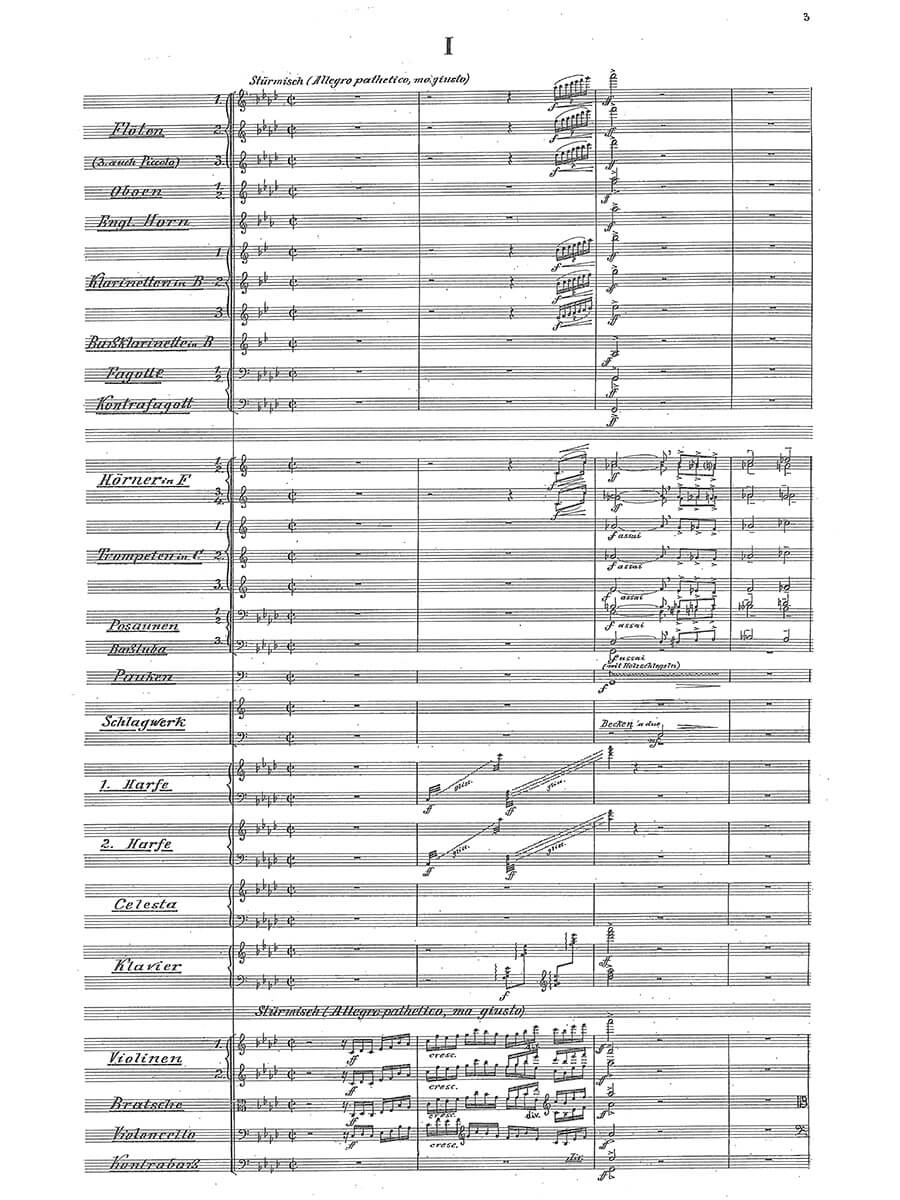Nordic Rhapsody for large Orchestra (large format)
Marx, Josef
50,00 €
Preface
Joseph Marx – Nordic Rhapsody for Large Orchestra
(b. Graz, May 11, 1882 – d. Graz, September 3, 1964)
Scored for:
3 fl – 3 ob – 4 cl – 3 bn – 4 hn – 3 tpt – 3 tbn – 1 tba – timp – perc – 2 hp – cel – pf – strings
Duration:approx.
30 minutes
If one looks today at the numerous distinctions and achievements that adorn the biography of Joseph Rupert Rudolf Marx and goes on to consider what an incisive influence his work had on the musical landscape, it is difficult to understand how, after his death, both his name and his work could at first be completely forgotten.
What deserves particular attention is the range of Marx’s activity, which was not restricted to musical composition but also included music education and journalism. As was the case for many other musicians of his time, his career did not set off straightaway but began, according to his father’s wishes, with the study of law, which he however soon abandoned for the combination of philosophy and history of art. Already as a child he gained initial experiences in the field of instrumental performance, at first through piano lessons and later also as a self-taught violinist and cellist. His first significant compositions date from his student years (1908-12), during which he wrote the majority of his total of about 150 songs. After gaining his doctorate in philosophy he decided finally on a musical career and in 1914 took up the chair of music theory and composition at the University of Music and Performing Arts Vienna, which he held until 1952. Marx’s influence on the musical and cultural life of Austria can be seen, among other things, in the various leadership positions that he held during the course of his life. In 1922 he was appointed director of the Viennese Academy of Music and was in addition between 1924 and 1927 vice-chancellor of the University of Music, which was attached to it and was founded on his initiative. As well as being a member of the City Council between 1934 and 1938, he was president of the Austrian Composers’ Association and of the Association of Austrian Music Teachers, as well as of the Society for Authors, Composers and Music Publishers (AKM). And beyond the borders of Austria Marx was deeply committed to international cultural understanding: in 1932 he was commissioned by Atatürk to act as adviser in the development of a Turkish system of music schools and played a decisive role in setting up a western oriented conservatoire in Ankara. It is not only as a significant cultural functionary but also as a composer that Marx was one of the most important musicians of his time, as is demonstrated by the numerous awards he received. Among the most important are the Grand Austrian State Prize for Music, which he was awarded in 1950, and the Grand Austrian Decoration for Science and Art, which shows again that his artistic ambitions extended over more than just one realm.
The fact that as a composer Joseph Marx today enjoys nothing like the status that he had during his lifetime is attributable to both musical and extra-musical reasons. The latter, in particular, are more difficult to relate to since they depend on no more than misunderstandings or unfounded smears. Among the non-musical reasons is the assumption that Marx had sympathies with the National Socialist regime because he did not protest against the regulations, and neither did he emigrate. To this must be added the circumstance, which must in retrospect be deemed tragic, that the composer was frequently confused with the National Socialist composer Karl Marx (1897-1985), who also stemmed from Graz, and was consequently wrongly accused of being close to the regime and even of having an antisemitic attitude – accusations which, as could later be demonstrated, lacked absolutely any substance. ..
Read full preface > HERE
Score Data
| Edition | Repertoire Explorer |
|---|---|
| Genre | Orchestra |
| Printing | Reprint |
| Pages | 132 |
| Special Size | 380 x 270 mm |
